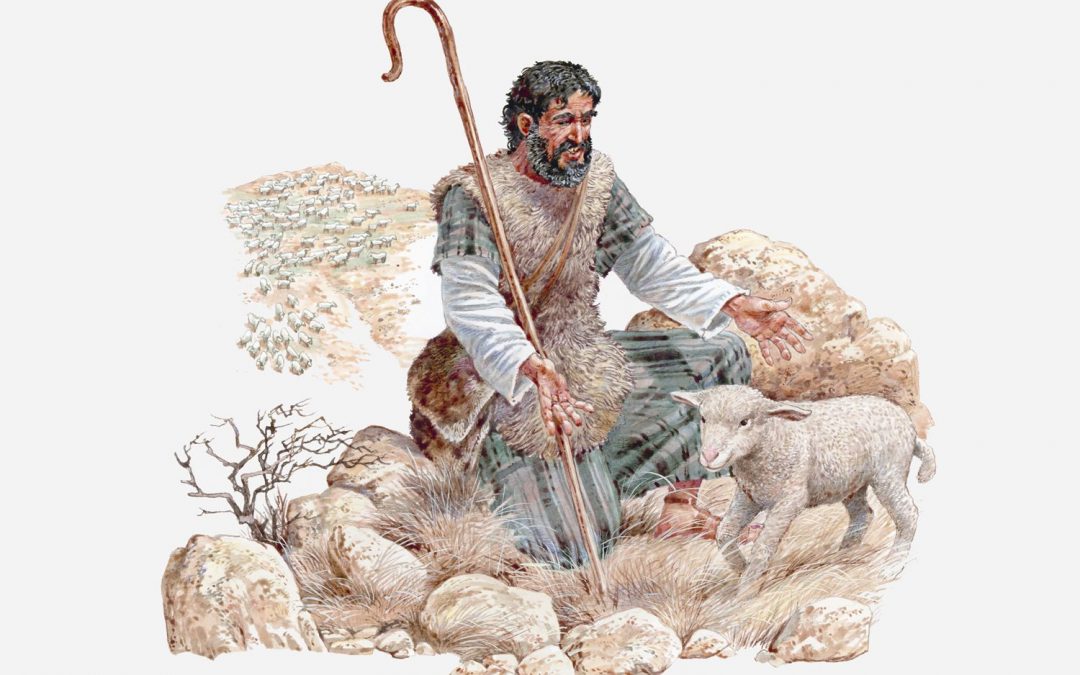New Cloth on an Old Coat (Matthew 9:16 ; Mark 2:21 ; Luke 5:36)
New Wine in Old Wineskins (Mark 9:17 ; Mark 2:22 ; Luke 5:37–38)
The Lamp on a Stand (Matthew 5:14–15 ; Mark 4:21–22 ; Luke 8:16 , 11:33)
The Wise and Foolish Builders (Matthew 7:24–27 ; Luke 6:47–49)
The Moneylender forgiving unequal debts (Luke 7:41–43)
The Rich Fool Building His Bigger Barns (Luke 12:16–21)
The Servants Must Remain Watchful (Mark 13:35–37 ; Luke 12:35–40)
The Wise and Foolish Servants (Matthew 24:45–51 ; Luke 12:42–48)
The Unfruitful Fig Tree (Luke 13:6–9 )
The Parable of the Soils (Matthew 13:3–23 ; Mark 4:1–20 ; Luke 8:4–15 )
The Weeds Among Good Plants (Matthew 13:24–43 )
The Growing Seed (Mark 4:26–29 )
The Mustard Seed (Matthew 13:31–32 ; Mark 4:30–32 ; Luke 13:18–19 )
Yeast (Matthew 13:31–32 )
Hidden Treasure (13:44)
Valuable Pearl (13:45–46)
Fishing Net (Matthew 13:47–50 )
Owner of a House (Matthew 13:52 )
Lost Sheep (Matthew 18:12–14 )
The Master and His Servant (Luke 17:7–10 )
The Unmerciful servant (Matthew 18:23–34 )
The Good Samaritan (Luke 10:30–37 )
Friend in Need (Luke 11:5–8 )
Lowest Seat at the Feast (Luke 14:7–14 )
Invitation to a Great Banquet (Luke 14:16–24 )
The Cost of Discipleship (Luke 14:28–33 )
Lost Sheep (Luke 15:4–7 )
Lost Coin (Luke 15:8–10 )
The Prodigal Son (Luke 15:11–32 )
The Shrewd Manager (Luke 16:1–8 )
The Rich Man and Lazarus (Luke 16:19–31 )
The Early and Late Workers in the Vineyard (Matthew 20:1–16 )
The Persistent Widow and Crooked Judge (Matthew 18:1–8 )
The Pharisee and Tax Collector (Luke 18:10–14 )
The King’s Ten Servants Given Minas (Luke 19:12–27 )
Two Sons (one obeys, one disobeys) (Matthew 21:28–32 )
Wicked Tenants (Matthew 21:33–44 ; Mark 12:1–11 ; Luke 20:9–18 )
Invitation to a Wedding Banquet (Matthew 22:2–14)
The Fig Tree and Signs of the Future (Matthew 24:32–35 ; Mark 13:28–29 ; Luke 21:29–31)
The Wise and Foolish Virgins (Matthew 25:1–13)
The Talents (Matthew 25:14–30)
The Sheep and the Goats (Matthew 25:31–46)
The Sheep, Shepherd, and Gate (John 10:1–18)




